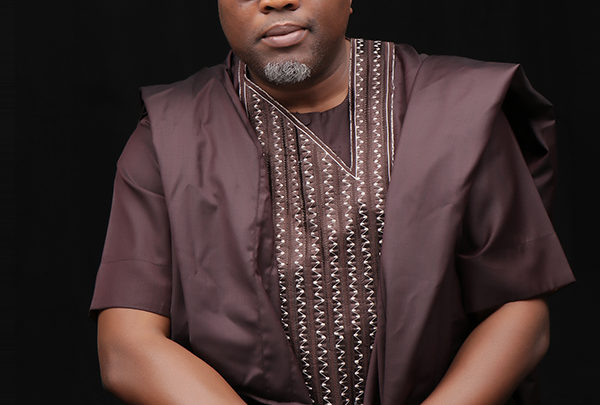
Professor Farouq Kperogi’s recent article titled “Problem of Paying Peanuts to Professors’ made very interesting reading as usual, but also throws up many urgent and important points to ponder, necessitating this response – not on behalf of the current administration, but in my personal capacity as someone very interested in the burning subject of the contribution of our academia to national progress, innovation and development. I believe this subject demands highly-elevated debates and conferences in which not only the academia will be involved, but also government operatives, the civil society and even the private sector as it has inherent seeds of Nigeria, nay Africa’s potential meteoric rise in the comity of nations despite decades of stymied growth and catatonic development in many areas. I hope to explain why in this missive.
But first, a few clarifications. I happened to have read the interview granted The Punch by Katsina-based Professor Nasir Hassan-Wagini Katsina, and what I got from that interview was a mile away from the inference drawn by Kperogi whose opinions I greatly respect and whom I’ve never know to try to befuddle his audiences. I didn’t read where the distinguished professor said he was involved in selling vegetables because he was broke as a lecturer. In fact, drawing that kind of inference takes away completely the essence of that encounter with the good Professor Hassan-Wagini who is actually a professor of Plant Resources at the Umaru Yar’Adua University, Katsina. That is not to say that the good man couldn’t make do with some extra cash like most of us. But from his statements, it seems that he has a deeper connection with his vocation. Listen to him:
“(I) was born by a farmer, grew up as a farmer, and went into produce businesses at an early stage of life. (My) story became popular after I was promoted to the rank of professor. My call to the NCE, Diploma, and degree graduates is that they should feel free and start small businesses in their communities instead of staying idle. I’m a professor of plant resources at UMYU, I want youths and students to look at me, know my rank and position, and I still engage in small business of this nature. That may clear their minds because they feel shame and are too big to go into such small types of businesses. What matters is what you are contributing to society. So, stop staying at home doing nothing when you did not get a job, start with small businesses like this one. Our youths should stop going to other places looking for a job, they should get into farming and other small businesses to become self-reliant. Self-reliance is key to a successful life. Try to merge your education with vocational skills for your good,”
Professor Wagini’s fellow vegetable-merchants draw a lot of inspiration from his passion, intellect, humility, kindness and trustworthiness and he seems to be an ambassador from the academia to the nano businesses in his area. But unfortunately, Kperogi’s article fell into that affliction which we see everywhere in Nigeria today whereby writers, bloggers, and everyone in the media space especially social media, simply try to explain everything wrong in society away by dumping on ‘leaders’, ‘government’ and generally farming out the blame neatly so that they may come away looking squeaky clean while tarring everyone in politics and governance as the perfect villains. I’m afraid that this approach solves no problems. I was touched personally by the Professor’s interview and the messages he passed across especially to the youths. Why must he be forced to stop doing a business he has always done almost all his life? Because he is a professor? Don’t professors abroad have more than one work if they choose? Is this approach not another way of glorifying ‘book’ against other productive ventures? Is Professor Wagini not solving a problem for society by being part of a market that brings much-needed vegetables to our citizens and thus stabilize prices for us all? Why try to make him look like a loser, a suffering professor? That is certainly unkind of Kperogi. I checked online and there are many American professors of Botany and such like, who also run their own or their university’s flower shops. Same equivalent. Why is such made to sound dirty because it happened in Nigeria?
But moving on… There are several other issues thrown up by Professor Farouq’s article that need serious consideration as stated earlier. First, the disconnect between the gown and the town (academia and workplace or real-life solutions) in Nigeria, is it just because Nigeria is not paying enough money to the academia? How did that become a tradition in Nigeria? We have to go back into history to get an idea. There was a time in Nigeria when Headmasters, Principals and University Professors were the ones who earned relatively large salaries that could have then been considered unfair by say farmers who actually slaved hard to bring the food without which no one could have survived much less earn a degree. there was a time when Principals and Headmasters were the most enlightened and respected people in the land and many of them were a shoo-in for political office. In the southwest we had people like Pa Michael Adekunle Ajasin, Pa Emmanuel Alayande and many more. I recall that some people like to disparage Sir Abubakar Tafawa Balewa for being a Grade-2 teacher before getting into politics, but that man with the guttural voice from which he spoke impeccable English vocabularies – the Voice of Africa – was then among the few most enlightened young men from the entire north of Nigeria. Have we noticed that our top earners today are mostly comedians, skitmakers, musicians and such like. You see them in first class and with their private jets often. Even they have bested the bankers.
But times have changed. Nigeria now parades millions upon millions of university graduates perhaps in excess of our needs. Master’s degree holders are now aplenty. Some PhD holders are lost in the job market, while foreign degrees that used to be admired in the 1990s are now a dime-a-dozen. A full rethink of the academic space in Nigeria is what we require, not just a nostalgic romance with a glorious past. This is not to say that our academia do not deserve much higher remuneration. They certainly do. However, I am calling on Nigeria’s academia to seize the moment as there are some levers that they could pull for themselves to begin to rewrite their own trajectory and to reclaim some of the lost grounds in terms of the respect, the relevance, and indeed their utility to national development. I don’t believe – in variance with Kperogi’s thesis – that the problem boils down simply to the bad relative remuneration of college professors in Nigeria. There are a myriad of issues – including the total deemphasis of polytechnic education over the acquisition of university certificates. China recently converted 600 universities to polytechnics, just for us to be aware.
Before I consider some of my own humble suggestions on ways forward, I believe it is also apposite to point to the fact that in many universities, they offer the brightest employment right from graduation day. And many people take it – usually first-class degree holders. Also recently, we have been seeing better monetary recognition accorded to scholars and this is as a result of social media outcry. Rather than the usual N1,000 for best graduating students, we now see them receiving millions upon millions. This is something to recognize and build upon, as the renaissance could help in spurring the renaissance we desire in our academia.
Back to the Japanese comparison… Farouq stated in his article that “Japanese universities did not become innovation hubs by accident. They achieved this by adequately funding universities, ensuring teachers were happy, and encouraging mass enrollment in higher education…. In Japan’s labor market, the university lecturer is a high-status, well-paid profession, surpassed only by top executives in the private sector. Because of this, Japanese universities attract the very best”.
It needs to be stated that every country’s history is unique. And one of the disadvantages we have here is that we are often distracted by what had turned out to be good outcomes for other countries that we are not building our own country as fast as we could. Japanese universities did not start becoming relevant to their society and economy just because professors were better paid, but because the average Japanese understood the importance of hard work and a long-term view, and they developed a strict discipline that most other cultures or societies – ours inclusive – would brush off or label as oppression in today’s listless, neoliberal world of glorified self-obsession. In the last Olympics, the Japanese athletes showed that example by always tidying up after themselves – sometimes cleaning whole stadia before retiring to bed. For no pay. This will be unacceptable in Nigeria, unfortunately. The same spirit is what grounds the average Japanese and makes it a necessity for him/her to hunker down and contribute to their nation’s development. It is not about money, even though some comfort will help. I believe that the most difficult task that academics like Kperogi can assist Nigeria with is how to devise ideas and systems that will make our people value monetary wealth less and start appreciating some of the finer values of life.
And there was some mention of what Professor Falola calls the ‘Idle Class’. This means that a society should have a certain slack of intellectuals – in and out of academia – who can churn ideas around, philosophize about society and refine ideas that make for progress. Whereas it is a great idea and we certainly have them here already (on every WhatsApp group and on social media), one wonders whether Nigeria – and most of Africa – should be seeking for an expansion of that idle class when we should actually be thinking about how to create real products and getting our hands greasy with the grind of industry and manufacturing. Nigeria – according to the World Economic Forum – is already the country in the world where citizens spend the most time on social media. As I acknowledged earlier, many government policies are already shaped by social media outcries but I believe that we should refocus especially our youthful energy to more productive things. If Trump is trying to bring back industry to the USA, we should too.
I read Dr Luke Onyekakeya’s write-up in Guardian some years back about his experience as an academic in same Japan especially about how a number of universities are focused on solving their Earthquake problems. I asked around then why does none of our universities focus on solving our gully erosion problems. What about other issues. Flood. Desertification. Even food poverty etc. In 2013 I was in Uganda and saw on their local TV how students of Makerere University constructed a mobile food processing unit mounted on the back of a small truck which they drove from village to village to help them juice up and preserve loads of their fruits which may have otherwise wasted. Could such initiative be connected with the fact that Uganda is somehow doing better with its agricultural sector compared with Nigeria today? Why is Cote D’Ivoire churning out almost ten times the same cocoa that Nigeria produces when they have less than a quarter of our land mass?
Therefore, I want our academia to ponder on the following:
- We need to trace back to the roots of our academia especially when it was simply prestigious to go to university irrespective of what you went to study, and the natural desire of university graduates who got cars and flats right after, to simply maintain the advantage even as the economy changed drastically. Recall what Lee Kwan Yew said about what the graduates he met in Nigeria and Ghana studied…in 1961. If we locate the roots of our issues in academia, then and only then can we solve them.
- We have to look into what may have prevented the taking of initiatives to solve particular or even local problems by our academia and what is called ‘adverse selection problem’ by which people will naturally seek their own comfort or get easily discouraged at the first sign that money will not come out of govt to support their initiative.
- We have to look at the problem whereby final year projects are usually individualized rather than done on group basis in assessing our students. The final projects or theses that are submitted by students sometime address critical issues, but I’ve seen them dumped in dustbins after some years in the archives. I have proposed severally and even in my present role that curriculum should change and be more practical and that final projects should address current problems but be done on group/cluster basis for scalability and continuity. Will our academia accept a change given that everybody naturally resists change? How do we reduce and eradicate the dependence of our academia on foreign funding. It shouldn’t take this long for us to break away and start thinking about our own enlightened self-interest.
- We have to also look at our own self-contradictions. The fact that somehow our academia has not been able to get rid of bad eggs, which eroded the academia’s very integrity and honor. Lecturers who victimize students one way or another. Even administrators who get involved in high corruption and VCs who see their appointment as a call to revel in luxury like politicians. I see academia as the very last bastion of integrity in a nation, at par with the judiciary. The call to be at the forefront of innovation and problem solving in a nation gets directly decimated by the wrong focus on money making, or by incidences where lecturers are called out for immorality and bullying of students. Is it then a Nigerian thing? Or a black African thing? Why are universities in South Africa much better and more likely to fulfil this need that we so desire? Is it because of the Dutch or Afrikaans effect.
As usual, I am only interested in nuanced reasons and in a deep dive. Farouq probably didn’t have space in his column to explore that much though I know him to be a sound thinker. I only disagreed with him once – when he supported the former Minister of Education that only 18-year-olds should get into university. I was surprised at him then.
Again, if we really want to move the needle on this topic and on rapid national development, we need a broader discussion on this matter. MOBILIZING our publics especially around governance and problem-solving is a key imperative. Many politicians see mass mobilization as something you do when elections are coming. Or maybe funding is the problem but I think this kind of mobilization eventually funds itself by the economic growth and good vibes it generates in the nation, especially among the youths. Universities and polytechnics and colleges of science and agriculture are spread all over the country, and thus an infusion of this kind of energy (focusing on problem-solving and immediate impact on society) into them will cause an organic blowup of activity, innovation, and development. We may be on to something great if this discussion is developed further. Could our university professors, nay our entire academia find it in their hearts to elevate beyond the failure of politicians? Could they manage a last gasp to spur Nigeria into the future in spite of all odds and all past misdeeds against them?


